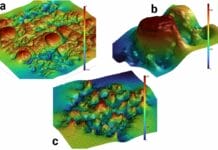Previously, it has been proposed that vitamin D could potentially improve periodontal health. In a recently published systematic review, the authors investigated the role of vitamin D in maintaining periodontal health.1
Vitamin D, also known as calciferol, is a fat-soluble vitamin found naturally in certain foods, added to others, and available as a dietary supplement. The recommended daily intake for adults aged 19 and older is 600 IU (15 mcg), while those over 70 should aim for 800 IU (20 mcg) per day. Excellent sources of vitamin D include cod liver oil, salmon, swordfish, tuna, fortified orange juice, fortified dairy and plant milk, sardines, beef liver, egg yolks, and fortified cereals.1
The researchers aimed to determine if adding vitamin D improves periodontal health in people with periodontal disease and to explore the link between vitamin D levels in the blood serum and any association with periodontal health. Previous studies have shown that an increase in vitamin D levels leads to a 15% reduction in the risk of periodontitis after adjusting for various factors.1
The Review
The review included three randomized controlled trials (RCTs) and one prospective cohort study conducted in 2011, 2016, and 2020. Two studies took place in Germany, one in India, and one in the United States, with participants aged 18 to 75. Three of the studies had between 18 and 28 participants, while one included 96 participants.1
Outcomes assessed included clinical parameters such as gingival scores, bleeding index, plaque index, calculus index, probing depth, clinical attachment loss (CAL), bleeding on probing (BOP), periodontal inflamed surface area (PISA), and furcation involvement. Microbiological parameters included total and specific bacterial counts, while radiographic parameters involved alveolar crest height (ACH) and nutrient analysis. The follow-up periods ranged from eight to 48 weeks.1
Of the three randomized controlled trials, two were determined to have a high risk of bias associated with the randomization process. The third had some concerns regarding missing data. The overall risk of bias was high in two randomized controlled trials and concerning in the third.1
The Results
In the first study reviewed, 16 participants were evaluated after eight weeks of follow-up. The results showed no significant differences in the total bacterial count in saliva, specific bacterial count in biofilm, or aerobic and anaerobic bacterial counts between and within groups.1
However, there were significant changes in specific bacterial species in biofilm samples from healthy participants. These included Fusobacterium spp., Streptococcus mitis group, Actinomyces spp., and Granulicatella adiacens. Additionally, a significant decrease in specific bacterial species in saliva was observed among participants consuming a low-calorie, high-roughage diet.1
In the second study reviewed, 96 participants were evaluated after 60 days of follow-up. The results showed a statistically significant increase in serum vitamin D levels among those taking vitamin D supplements, while those taking a placebo showed only minor, non-significant increases. Regarding gingival scores, there was a significant reduction in those taking cholecalciferol supplements based on dosage during follow-up visits, whereas the placebo group showed no significant changes.1
In the third study reviewed, 15 participants were evaluated after eight weeks of follow-up. The results showed no significant differences in plaque index, probing depth, and clinical attachment loss. However, there was a significant improvement in the gingival index and bleeding on probing. Additionally, there was a highly significant reduction in the periodontal inflamed surface area.1
In the fourth study reviewed, 51 participants were assessed over 48 weeks. Overall, those who did not take supplements had worse clinical outcomes than those who did, a pattern that persisted throughout the study. On average, periodontal measurements were 23%, 19.9%, and 15.6% better in supplement takers at baseline, six months, and 12 months, respectively, compared to non-takers.1
While there were no significant differences between the groups in radiographic measurements of alveolar crest height at six and 12 months, those taking supplements had denser bone on radiographic optical density.1
Conclusion
This review found there is a linear association between vitamin D and periodontal health, but this connection requires validation through more extensive longitudinal studies with larger sample sizes and fewer hazards of bias.1
The antimicrobial properties of vitamin D are particularly crucial for periodontal health, possibly even more so than its role in bone health maintenance. Further research is needed to understand the specific antimicrobial mechanisms of vitamin D in maintaining periodontal health, as current data is limited and fragmented.
A diet with adequate foods with vitamin D has the potential to improve periodontal health. Nonetheless, further well-designed studies are needed to confirm the association and the mechanism of action.1
Before you leave, check out the Today’s RDH self-study CE courses. All courses are peer-reviewed and non-sponsored to focus solely on high-quality education. Click here now.
Listen to the Today’s RDH Dental Hygiene Podcast Below:
Reference
1. Shah, M., Poojari, M., Nadig, P., et al. Vitamin D and Periodontal Health: A Systematic Review. Cureus. 2023; 15(10): e47773. https://www.ncbi.nlm.nih.gov/pmc/articles/pmid/37899906/











